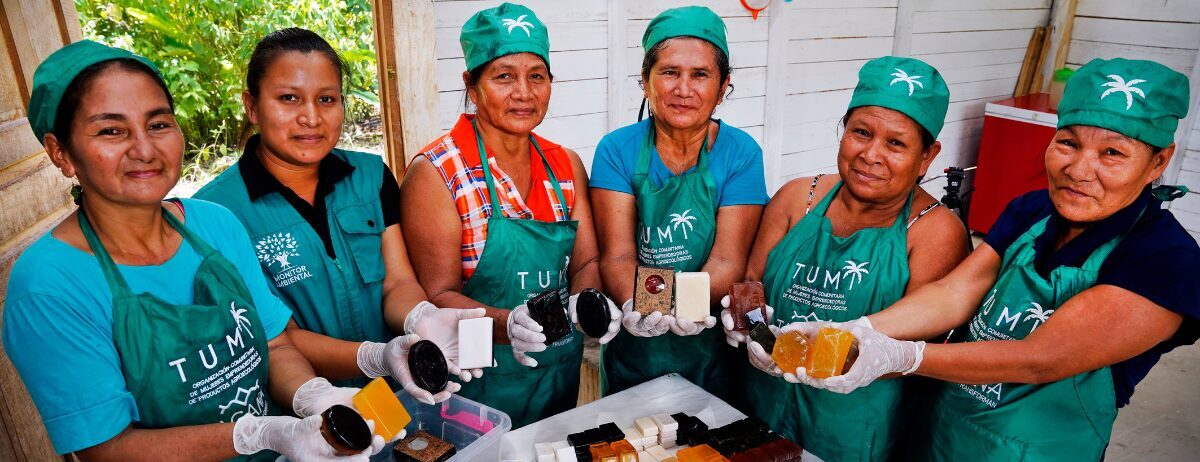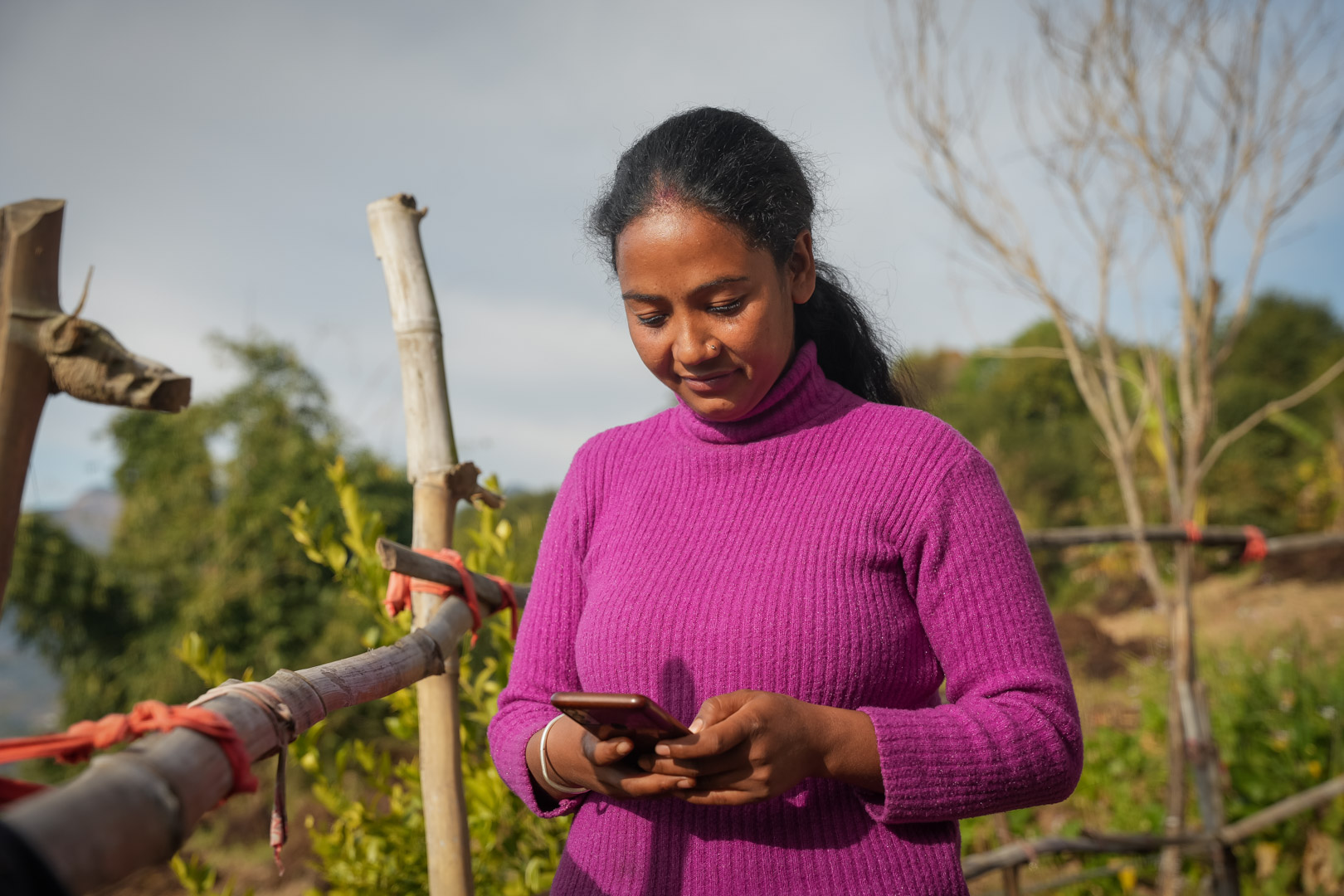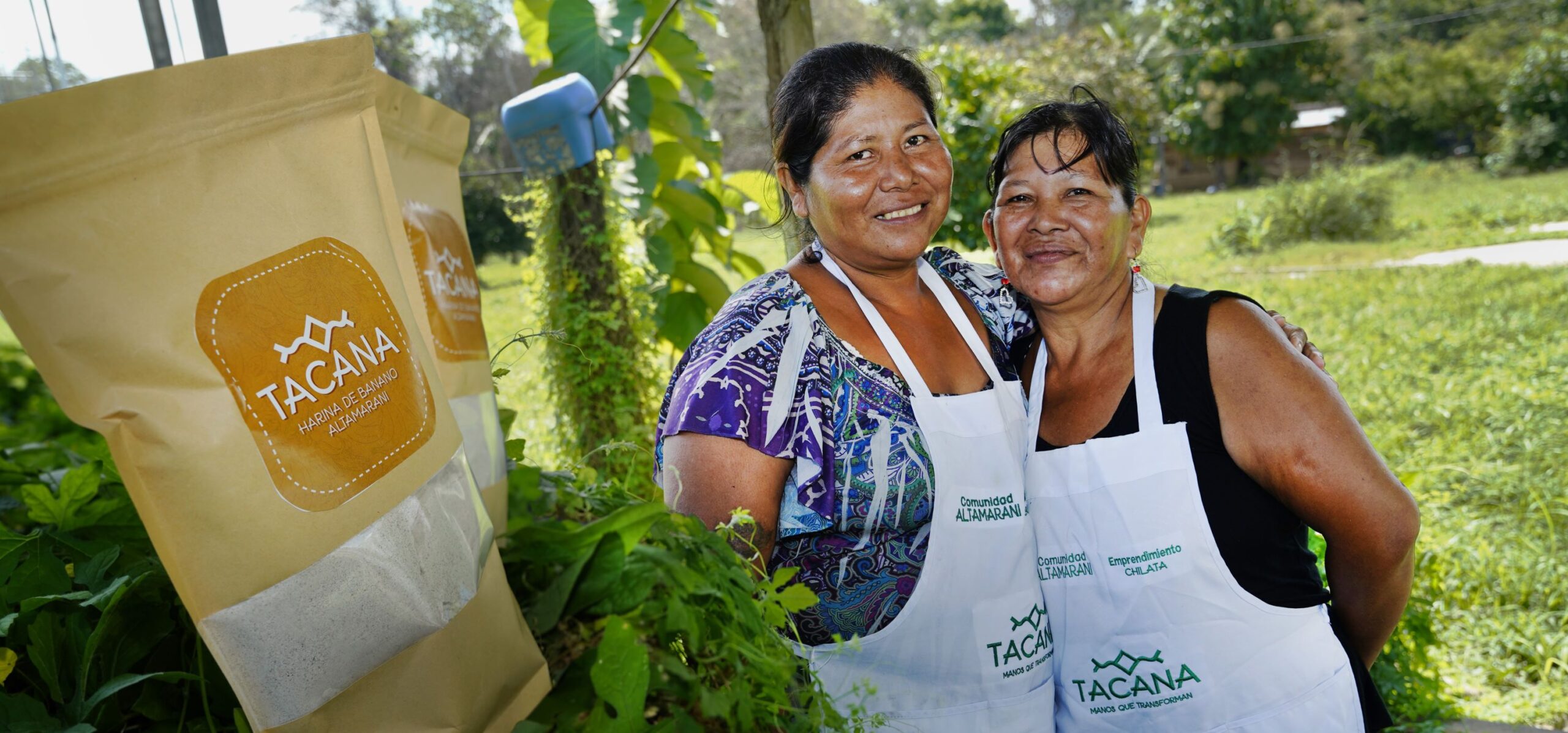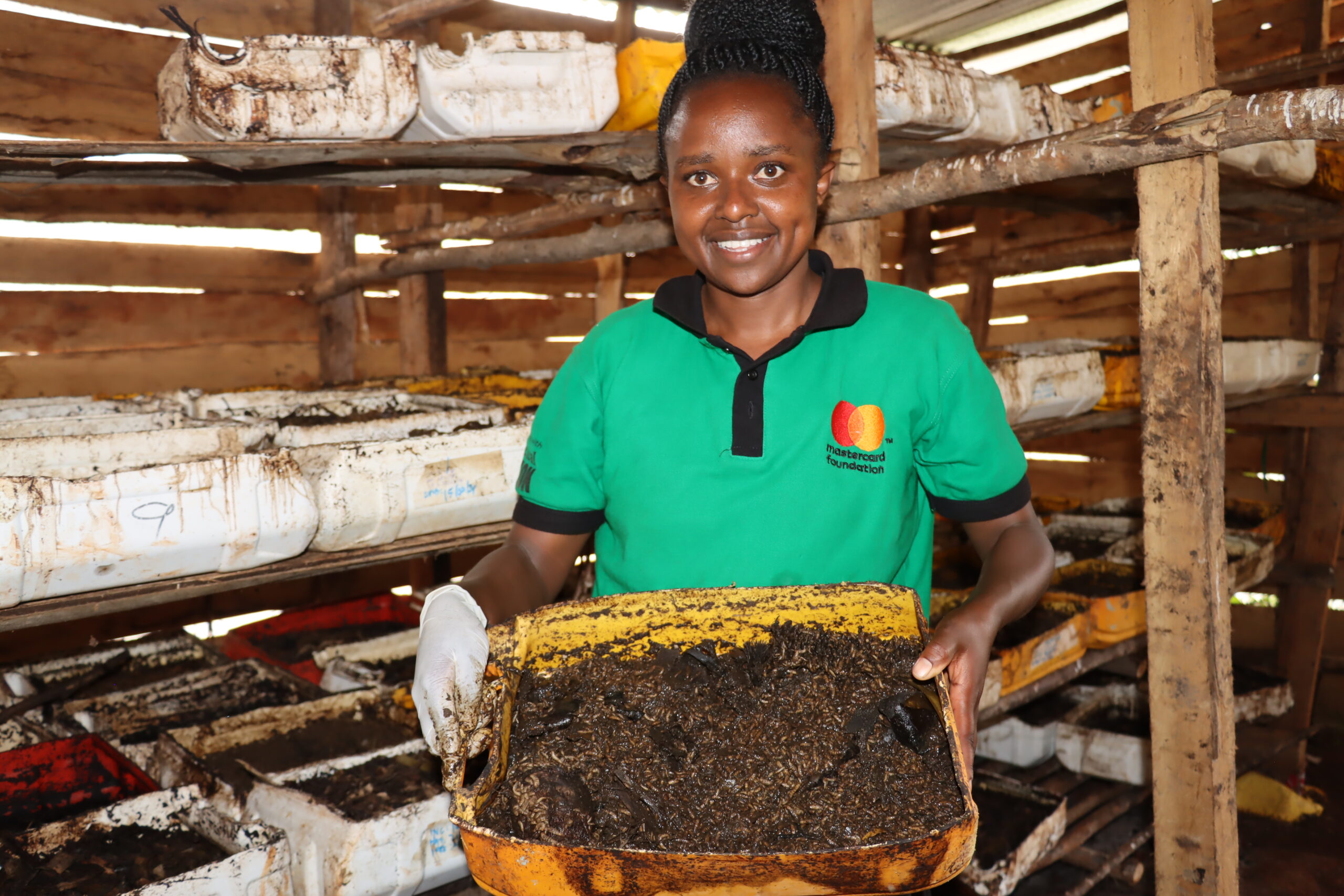
Gender equality is not just about fairness—it’s vital for ending poverty, adapting to climate change, and creating a world that works better for everyone.
When women are empowered to lead, they drive transformative social and economic change. Yet, despite decades of progress, deep-rooted barriers persist, limiting women’s access to decision-making, land, finance, and markets. At our current pace, full gender equality won’t be achieved until 2158, over five generations from now. This isn’t just a distant date; it’s a wake-up call.
Without more decisive efforts, generations of women will continue to face the same barriers, limiting their opportunities and potential. But, when women have the power, resources, and opportunities to shape their own futures, they can drive change at every level. Although global trends seem to be slowing or even going backwards, we are working hard to ensure women’s voices drive climate resilience, agriculture and clean energy solutions, influencing policies and creating more opportunities to make a lasting impact.
This International Women’s Day, we’re calling for accelerating action. Because when we move together, we move faster towards equity. Let’s celebrate the achievements of women worldwide who are already driving change—reshaping businesses, strengthening their communities, and breaking down barriers.

Nepal: Equipped for success
In Nepal, more than 70% of women work as farmers. Men often leave the rural areas to work in the nation’s cities. So, while women grow food for their families, their lack of education often limits their ability to make financial decisions or take on leadership roles. But as digital tools reach rural Nepal, change is taking root.
Thanks to initiatives like the Janapriya Digital Financial Literacy Class. Community volunteers, trained as Women Digital Champions, are equipping women with financial literacy and digital skills, fostering economic independence and healthier family dynamics.
Amrita Oli, a 27-year-old mother from Koiralneta, is one of the women benefiting from this programme. Before the course, she spent her time farming and working as an insurance agent. During the training, challenging the status quo was her favourite session. Before the course, there was no division of labour for household chores, and women in her village couldn’t express their opinions in their homes or communities. After that, Amrita felt able to consult with her husband, and together, they decided that with little farmland, they’d be better off with Amrita purchasing and sending local fruit and vegetables to her husband’s shop in Kathmandu. Now, the benefits are tangible, saving the family Rs. 25,000 a month (approximately £145, and almost one and a half times the basic income of Rs. 17,300).
Being part of the Samunnati Digital Literacy Class not only inspired her to become an entrepreneur and conduct her business digitally, but she also taught those she insured as an agent to make digital payments, ensuring they avoid having to travel long distances.
“In the past, we farmed only for our own consumption. But now, vegetable farming and selling have become a source of income for me. I collect others’ produce and sell it in Kathmandu, and with mobile banking, receiving payments—even from the capital—has never been easier. I can also check vegetable prices through the internet, pay my electricity bills digitally and carry out digital transactions,” said Amrita Oli.
For Amrita, the Digital Financial Literacy Class has increased family cooperation and improved gender relations. She has also witnessed changes in the women in her community, “Now, women are also aware that they need to move ahead and that they have their own rights.”

Bolivia: Leading change and protecting their land
In the heart of Bolivia’s Madidi region, a biodiversity hotspot, indigenous women are leading the charge toward sustainable development. Faced with climate threats and pressures on their ancestral lands, these women protect their environment and heritage while creating innovative economic alternatives for their communities.
“Most of the enterprises in the Tacana territory are led by women,” says Yolanda Frías of Practical Action. “They’re finding ways to generate income while improving their lives and land.”
This work is deeply personal for Roxana Añez (pictured on the left), a leader from the Achilata entrepreneurship. “Before, we farmed or fished just to get by. We didn’t have any other options. But now, I have a dream—to see our products reach not just our region but the world.”
That dream takes shape through the Tacana Women’s Route, four women-led businesses that blend tradition with innovation. These enterprises are more than just income generators—they’re a way of life rooted in sustainability, community, and respect for the land. Tumi focuses on craft soaps and oils from medicinal plants. Mura Vita Vita produces rich cocoa paste using traditional methods. Achilata, Roxana’s enterprise, turns bananas into nutrient-packed flour, while Delmy creates jewellery and handicrafts from forest seeds. By integrating their values and traditional knowledge into economic decisions, 136 Tacana empowered women protect 4,000 forest hectares, while they are redefining what it means to thrive sustainably.
Their efforts have gained global recognition. The Tacana Women’s Route has been awarded the top story worldwide in the Thriving Communities category by the Green Destination Foundation. It’s a huge honour, but for the women involved, it’s about more than awards.
“We’re not just preserving our land,” Roxana explains. “We’re building a future where our children can thrive. This work gives us pride, purpose, and a voice in decisions that affect our lives.”
These women are proving that sustainability and gender equality go hand in hand. By leading businesses that protect their environment and honour their traditions, they’re showing the world what’s possible when women are empowered to lead.

Kenya: Revitalising agriculture
In Kenya a few years ago, Anastanciah Nyangaresi saw farming as a means of survival rather than a viable business. Her costs were considerable on her family’s half-acre plot. She was reliant on chemical pesticides and conventional farming methods to grow cabbages. Despite using the fertiliser created by the Black Soldier flies she farmed, her monthly income was capped at KES 10,000 (approximately 60 pounds). She also had no way of selling her produce beyond her local village.
In December 2023, she joined the Resilient Agriculture for Young People (RAY) project, and her transformation began. Through training in regenerative agriculture, business development, and financial literacy, Anastanciah transformed her farm.
“RAY has not just changed my life—it has given me a platform to empower others and build a better future for us all (…) Farming was just a way to feed my family. I never imagined it could transform into a business that could empower me and others in my community,” she reflects.
Adopting regenerative techniques, she went from a chemical-based to a sustainable organic approach to farming. Anastanciah mastered Azolla farming (a high-protein aquatic plant that can be used as animal feed), composting and creating organic pesticides using the tithonia plant, peppers, and aloe vera. These innovations cut her production costs and boosted her yields.
“Switching to organic methods has been a game-changer. I spend less and grow more. What’s more, my farm is now a model for sustainable practices in my community,” she said proudly.
Her efforts inspired the local community to support her Black Soldier fly farming. Neighbours and fellow farmers within the project began collecting and delivering waste materials, ensuring a steady supply of the larvae.
With her improved skills, Anastanciah diversified her farming ventures. She expanded her crops to include organic tomatoes and spring onions, practising crop rotation to maintain soil health. Links to new markets facilitated through the project enabled her to secure supply contracts with local schools and institutions. This diversification tripled her monthly earnings.
Anastanciah didn’t stop there—she expanded her agribusiness into poultry farming. Her poultry business now generates an additional KES 10,000 per month, and she also earns KES 1,000 per kilogram by selling Azolla cultures to other young, local farmers.
“Diversification has given me stability and opened opportunities I never thought possible. It’s not just about what I can do—it’s about how I can help others succeed too,” she shares.
Acknowledging her expertise and dedication, Anastanciah was recently selected as a mentor for the RAY project. She now advises eight young farmers (five women and three men) on adopting sustainable agricultural practices, enhancing their business skills, accessing broader markets, and promoting mainstream gender equality.
But her impact extends far beyond her immediate community, becoming a passionate advocate for empowering women and young people in agriculture, representing young farming entrepreneurs at a county-level stakeholders’ meeting in Nyamira in October 2024.
The path forward
The stories of Amrita, Anastanciah, Roxana, and countless other women around the world remind us of the transformative power of empowerment and opportunity. But to accelerate progress, systemic change is essential.
Investing in programmes like Nepal’s digital literacy classes equips women with the skills to thrive in a modern economy. Ensuring women have access to land, credit, and markets is critical for economic independence. Supporting initiatives like the Tacana Women’s Route shows how women-led businesses can drive environmental and financial sustainability. And this is just the beginning—much more must be done.
This International Women’s Day, let’s commit to taking concrete actions. Support organisations that champion women’s rights, advocate for policies that promote equality, and share these stories to inspire others.
Together, we can create a world free of bias, stereotypes, and discrimination—a diverse, equitable, and inclusive world where difference is valued and celebrated.
Let’s #AccelerateAction for gender equality, not just for today, but for generations to come.